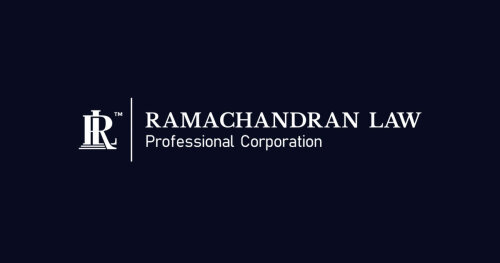Best ADR Mediation & Arbitration Lawyers in Canada
Share your needs with us, get contacted by law firms.
Free. Takes 2 min.
Or refine your search by selecting a city:
List of the best lawyers in Canada
About ADR Mediation & Arbitration Law in Canada
Alternative Dispute Resolution (ADR) in Canada includes processes such as mediation and arbitration, which are designed to resolve conflicts outside the traditional courtroom setting. These methods offer a more flexible, cost-effective, and private means of settling disputes. ADR can be applied to a wide range of disputes, including family, commercial, labor, and international issues. In Canada, ADR practices are governed by a mixture of federal and provincial laws, alongside industry-specific regulations.
Why You May Need a Lawyer
Engaging a lawyer experienced in ADR can be beneficial in several situations. If you are involved in complex commercial disputes, require confidentiality, or seek quicker resolution, an ADR-focused lawyer can assist. Legal advice is also crucial when drafting or interpreting arbitration clauses in contracts, understanding the enforceability of mediation agreements, and navigating complex jurisdictional issues, such as cross-border disputes. Lawyers can also represent parties in ADR processes, ensuring fair treatment and advocating for their client’s best interests.
Local Laws Overview
In Canada, the legal frameworks governing ADR vary across provinces and territories. However, general principles apply nationwide. The Arbitration Act in each province typically outlines the rules for arbitration proceedings, including the role of arbitrators, procedures, and enforcement of awards. Mediation is less formally regulated, allowing greater flexibility, though certain industries may have specific requirements. The Uniform Law Conference of Canada seeks to harmonize and develop consistent ADR standards across the country.
Frequently Asked Questions
What is the difference between mediation and arbitration?
Mediation involves a neutral third party helping disputants negotiate a mutually acceptable agreement, while arbitration involves a decision made by an arbitrator, which is binding.
Is an arbitration award enforceable in court?
Yes, arbitration awards are generally recognized and enforceable in Canadian courts, provided they meet all legal requirements.
Can I choose my own mediator or arbitrator?
Parties can often agree on the choice of mediator or arbitrator. If not, appointments can be made by arbitration organizations or courts, depending on the context.
Is mediation confidential?
Yes, mediation is typically confidential, and parties cannot use information disclosed during mediation in subsequent proceedings.
Can I represent myself in ADR proceedings?
While it's possible to represent yourself, having a lawyer can ensure that your rights and interests are fully protected.
What if I am unhappy with the arbitration decision?
Options to appeal an arbitration decision are typically limited, emphasizing the importance of choosing a qualified arbitrator and understanding the process beforehand.
How long does the ADR process take?
ADR processes generally resolve disputes faster than traditional litigation, though timelines vary depending on the complexity of the case and parties' cooperation.
Is ADR less expensive than going to court?
ADR can be more cost-effective than litigation due to shorter timelines and reduced legal fees, though costs can vary depending on the process and dispute specifics.
Do both parties have to agree to use ADR?
Yes, participation in mediation or arbitration generally requires agreement from both parties, unless a prior contract mandates ADR.
Can ADR be used in all types of disputes?
ADR is suitable for many but not all disputes; issues too complex or with significant public interest may require traditional litigation.
Additional Resources
Here are some resources and organizations that can assist those seeking information or legal advice regarding ADR:
- ADR Institute of Canada
- Provincial Bar Associations
- Canadian Bar Association’s ADR Section
- Your province's Ministry of the Attorney General
- Local legal clinics specializing in ADR
Next Steps
If you need legal assistance with ADR in Canada, begin by consulting with a lawyer specializing in ADR. Consider contacting provincial bar associations for referrals or utilizing free consultation services often offered by law firms. It's important to gather all relevant documentation and information about your dispute prior to your consultations. Prepare questions regarding your options and potential outcomes to ensure comprehensive legal support from your ADR process.
Lawzana helps you find the best lawyers and law firms in Canada through a curated and pre-screened list of qualified legal professionals. Our platform offers rankings and detailed profiles of attorneys and law firms, allowing you to compare based on practice areas, including ADR Mediation & Arbitration , experience, and client feedback.
Each profile includes a description of the firm's areas of practice, client reviews, team members and partners, year of establishment, spoken languages, office locations, contact information, social media presence, and any published articles or resources. Most firms on our platform speak English and are experienced in both local and international legal matters.
Get a quote from top-rated law firms in Canada — quickly, securely, and without unnecessary hassle.
Disclaimer:
The information provided on this page is for general informational purposes only and does not constitute legal advice. While we strive to ensure the accuracy and relevance of the content, legal information may change over time, and interpretations of the law can vary. You should always consult with a qualified legal professional for advice specific to your situation.
We disclaim all liability for actions taken or not taken based on the content of this page. If you believe any information is incorrect or outdated, please contact us, and we will review and update it where appropriate.
Browse adr mediation & arbitration law firms by city in Canada
Refine your search by selecting a city.












